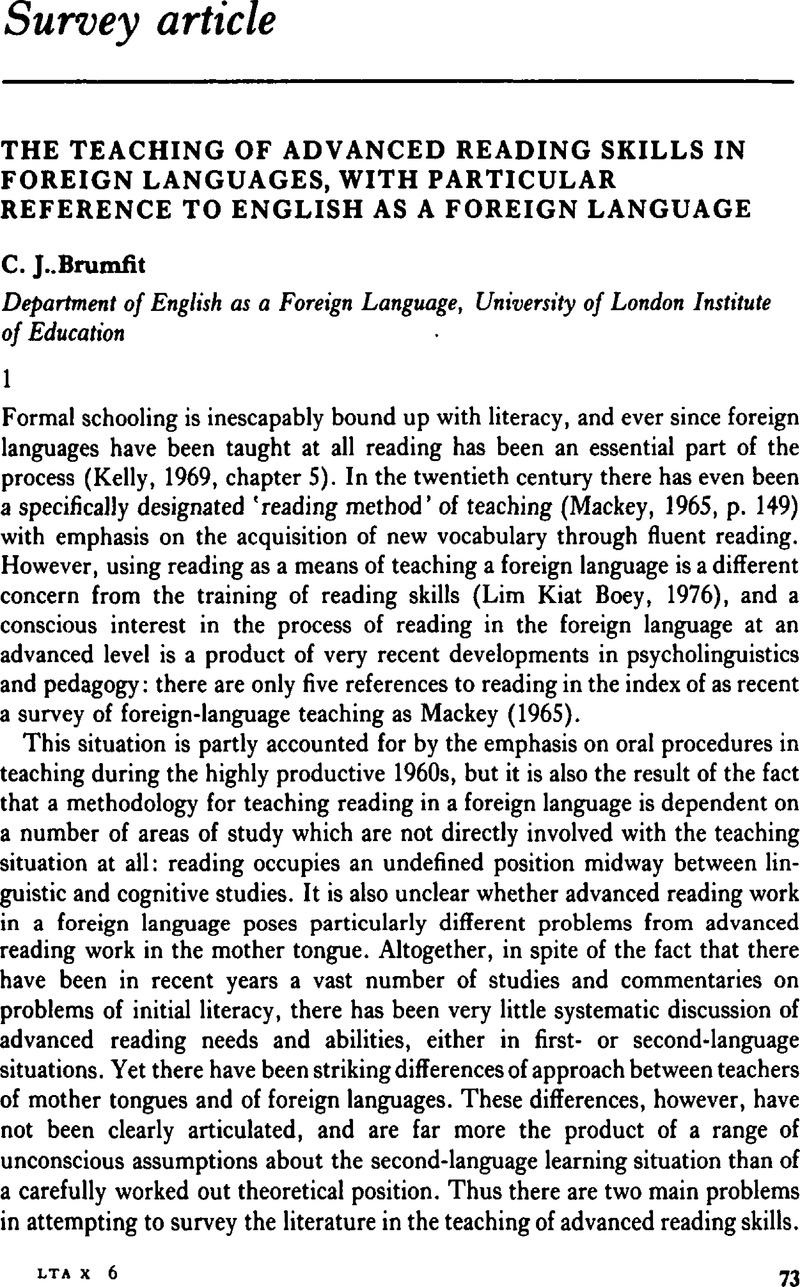Crossref Citations
This article has been cited by the following publications. This list is generated based on data provided by Crossref.
Ulijn, Jan
1980.
Foreign language reading research: recent trends and future propects.
Journal of Research in Reading,
Vol. 3,
Issue. 1,
p.
17.
Carrell, Patricia L.
and
Carson, Joan G.
1997.
Extensive and intensive reading in an EAP setting.
English for Specific Purposes,
Vol. 16,
Issue. 1,
p.
47.
Zheleznova, E. G.
2019.
Reading as a way of teaching english.
Scientific bulletin of the Southern Institute of Management,
p.
110.



